7 ways Meta Quest 3 beats Apple Vision Pro
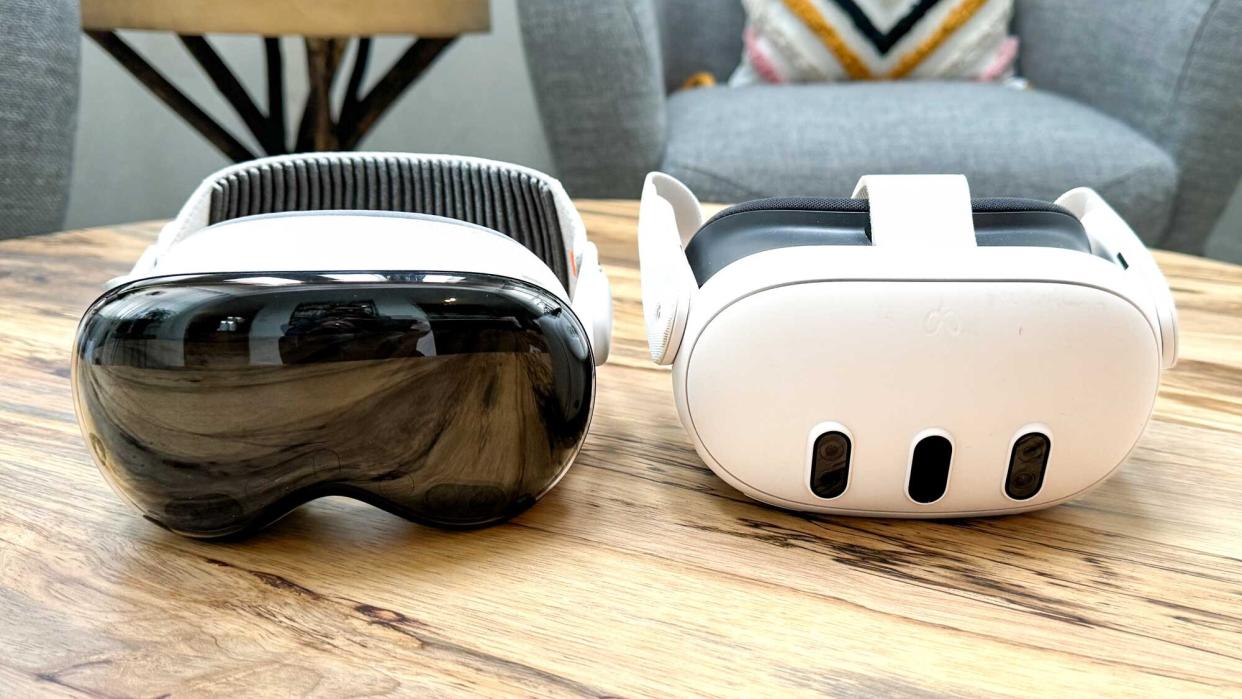
The $3,500 Apple Vision Pro is generating a ton of buzz as Apple's first spatial computing device, which combines augmented reality and virtual reality in one headset. As you'll see in my Apple Vision Pro review, this is one impressive wearable computer, with a first-class video passthrough experience and an amazingly intuitive eye-tracking interface that beats the Meta Quest 3. But the Meta Quest 3 delivers many of the same features as the Vision Pro for less.
Our Meta Quest 3 review shows why this $499 headset is the best VR/AR headset for most people. And with the most resent update, The Meta Quest 3 has also picked up several Apple Vision Pro-like features, including the ability to view spatial photos and videos, new finger pinch gestures and enhanced support for game controllers. Here's 7 ways the Meta Quest 3 beats the Apple Vision Pro.
Correction: An earlier version of this story said the Meta Quest 3 doesn’t offer prescription lenses. You can get them starting at $49 from Zenni and HonsVR.
Way, way cheaper
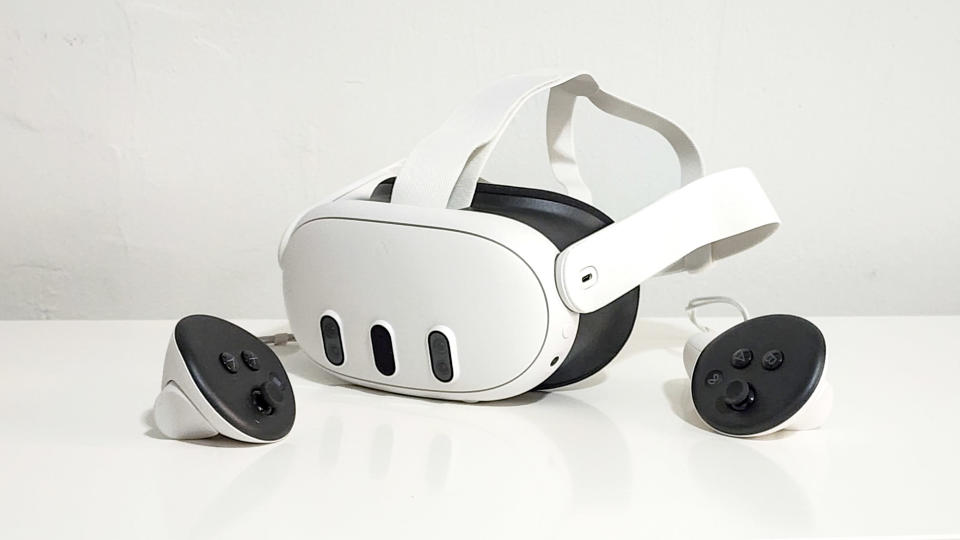
This one is obvious but it needs to be said. The Apple Vision Pro starts at $3,499 for 256GB of storage, and you'll pay $3,699 for 512BGB and $3,899 for 1TB. And that's before any of the accessories. The optical Zeiss lenses costs $99 to $149 for readers and prescription, respectively (the Meta Quest 3 offers this feature through third-part sellers), while the carrying case is a whopping $199.
Meanwhile, the Meta Quest 3 starts at $499 for 128GB of storage and the 512GB version costs $649. The Quest 3 also comes with Asgard's Wrath 2, a $59.99 game, through March 30th.
Lighter on your head
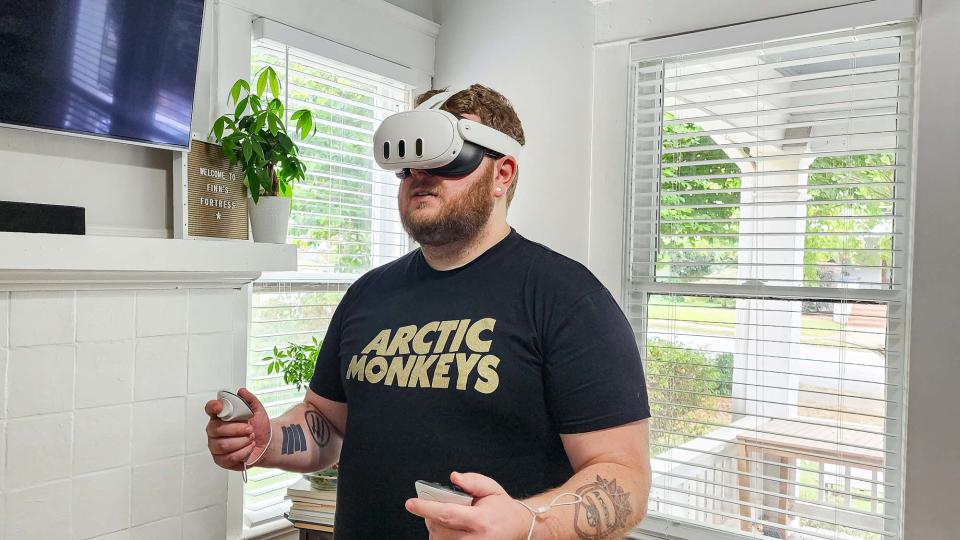
The Meta Quest 3 weighs 1.1 pounds compared to 1.3 to 1.4 pounds for the Vision Pro (depending on the Light Seal and head band configuration). That might not seem like a big difference, but I definitely feel the difference when wearing these two devices.
While the Vision Pro felt like it was weighing on my head and cheeks after 30 minutes or so, I didn't notice the Meta Quest 3 as much during use. I do like that the Vision Pro comes with two band options, and it's easier to take on and off than the Meta Quest 3 with Apple's Solo Knit Band. But for longer sessions Apple's Dual Loop Band provides more support for the Vision Pro's heft.
Better room scanning and boundaries setup
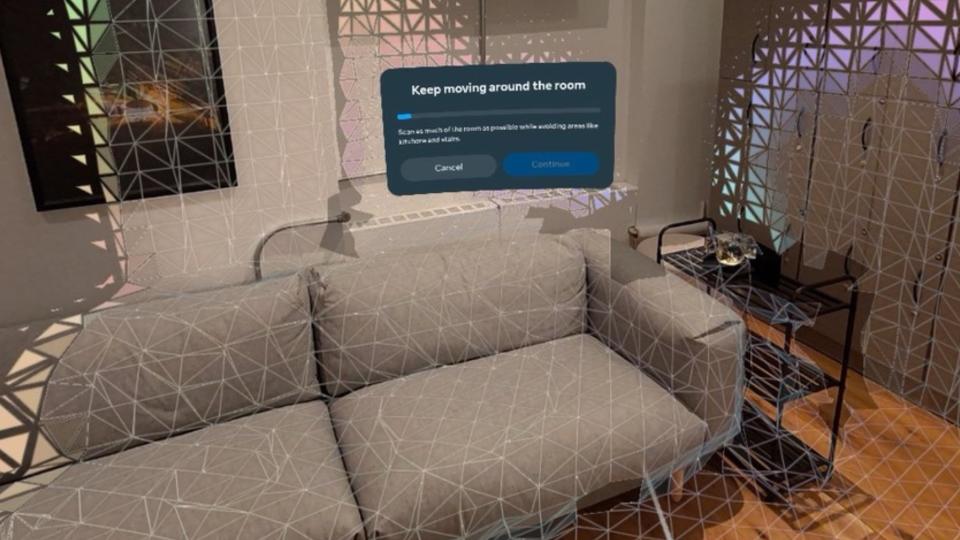
One of the things I really like about the Meta Quest 3 is that it can automatically scan your room to set up a boundary. It did an excellent job with my somewhat cramped home office, automatically detecting a couch, exercise bike and office chair, all of which you'll see in a real-time wireframe that provides peace of mind.
The Apple Vision Pro lets you see obstacles, but when I was in the Environments mode I didn't get any warnings as I got close to a wall. So it's better to use AR/spatial mode if you'll be moving around instead of VR mode.
More games and fitness apps

The Vision Pro is just getting started and has 600 apps at launch, and while the selection is fairly impressive so far, Meta is way ahead when it comes to immersive games and fitness apps.
There's a wide range of high-quality titles in all sorts of genres, including Assassin's Creed Nexus (adventure), Resident Evil 4 (horror), Beat Saber (music), Asgard’s Wrath II (action RPG) and Red Matter 2 (puzzle, shooting). For now the Vision Pro's game selection is much more limited in terms of native apps.
The Meta Quest 3 also has a great selection of fitness apps, such as Hitstream, Holofyit, Les Mills BodyCombat and Knockout League for boxing. I haven't seen many Vision Pro fitness apps yet, and I worry about the heavier weight of Apple's headset during lots of movement.
Larger FOV (field of view)
As soon as our Vision Pro review came out I kept getting the same question over and over on YouTube and TikTok. What is the field of view? Apple doesn't officially list this spec, but as you can see from the screenshots above from screen recordings from both headsets, the Meta Quest 3's view (110 degrees horizontal, 96 degrees vertical) is considerably taller. This can help make apps more immersive while also giving you more peripheral vision for avoiding obstacles while you're moving around. The horizontal FOV is about equal.
You don't need a separate battery
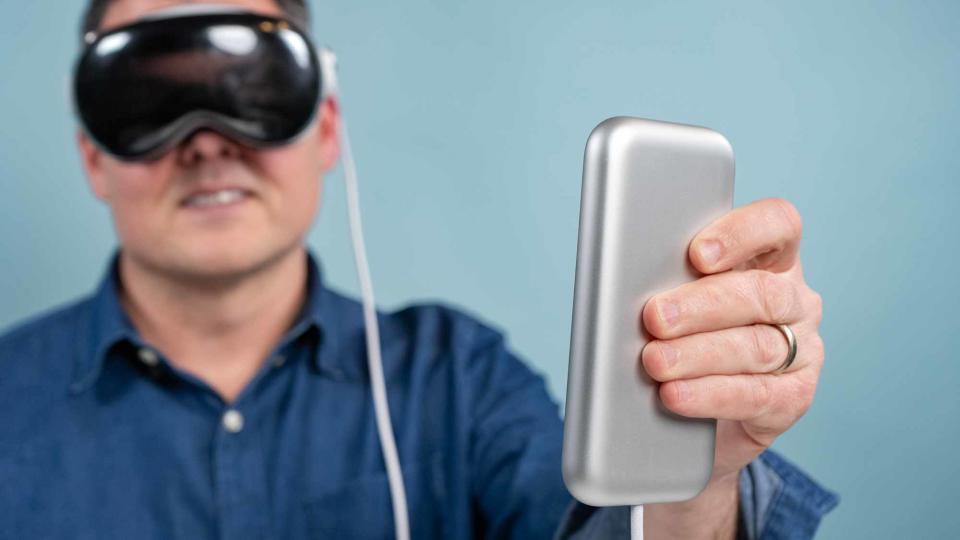
To be fair, the Apple Vision Pro is a more powerful headset with its dual M2 and R1 chips, but with great power comes the not so great responsibility of having to schlepp around an external battery that's always attached to the Vision. With the Meta Quest 3, the battery is built into the headset.
The Meta Quest 3 offers 2 to 3 hours of battery life depending on the task, while the Vision Pro is rated for 2-2.5 hours.
You can use your hands or controllers
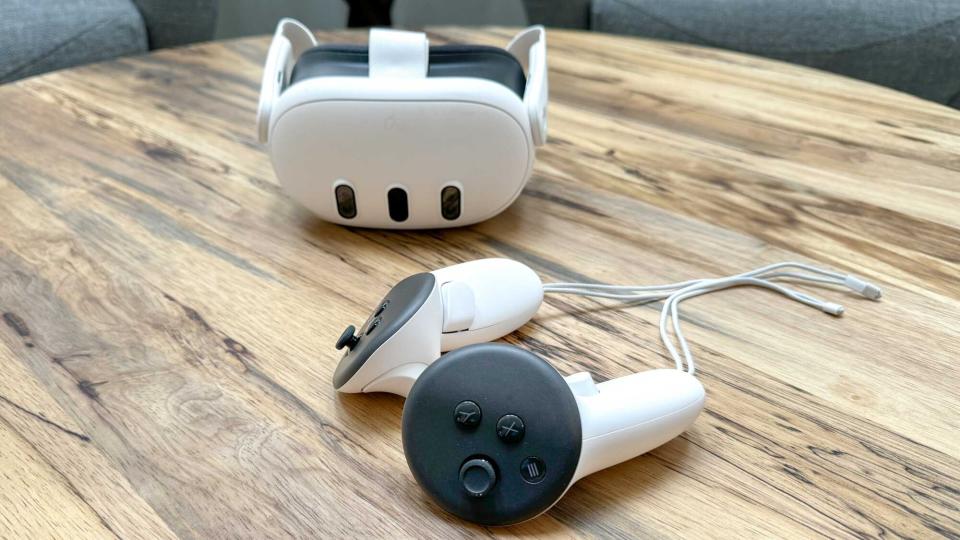
Yes, the hand controls on the Vision Pro are amazingly intuitive. And I love the fact that they even work in your lap — thanks to downward-facing cameras. But in some cases I prefer the precision of having controllers, especially when playing games. The Meta Quest 3's controllers have three buttons each and two thumb sticks, plus two triggers. Also there's something satisfying about seeing a virtual beam of light hit the item you want to select to make sure you're hitting the right thing, whether it's an app you're trying to open or a letter you're typing on the keyboard.
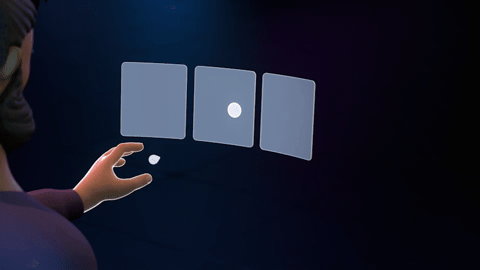
The Meta Quest 3 offers hand tracking as well, letting you point and pinch to select something, pinch and scroll and more. The latest update enables you to open the universal menu with a pinch and release gesture, while pinching and holding recenters the headset view.
Where the Vision Pro wins and bottom line
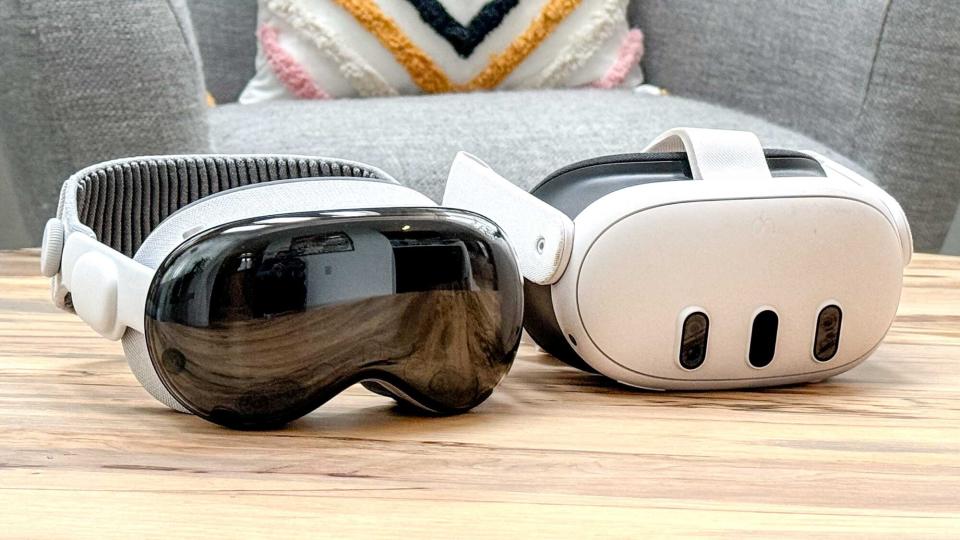
I think it's important to stress that the Apple Vision Pro is in its own league when it comes to certain things. You can watch blockbuster 3D movies from Apple, Max and Disney Plus, for example. And you can capture both spatial photos and videos with the Vision Pro, while the Meta Quest 3 just displays them from your iPhone 15 Pro and iPhone 15 Pro Max.
In addition, the Meta Quest 3 does not doffer eye tracking like the Vision Pro, which makes the hand tracking less intuitive. And the video pass-through is also much lower-res; it's like looking through a screen door compared to Apple's headset. And while the Meta Quest 3 has a beta remote desktop app that lets you bring your desktop into AR, it's not as versatile as Apple's Mac integration. But overall the Meta Quest 3 is a very good value and it's only getting better with each update.
